Maybe you haven't seen it, but we've already posted theAnnual Planning for Kindergarten 1, and in this post we selected the Annual Garden Planning 2.
Early childhood education is an important stage for the academic formation of every individual. For the success of this endeavor, the teachers are committed, program and plan all the activities to be developed. Always starting with annual planning, passing through semi-annual, weekly and daily planning.
Planning the annual pedagogical action is a very important step. At this stage, goals and objectives are discussed and strategies are articulated and adjusted to the possibilities of action.
See too:
Index
We are always thinking of helping you as a reader of the site, we provide below a template of Annual Planning for Kindergarten 2 for download in PDF, check it out:


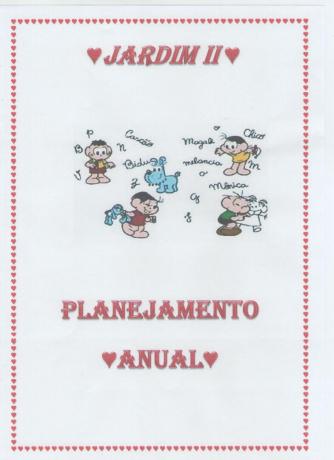
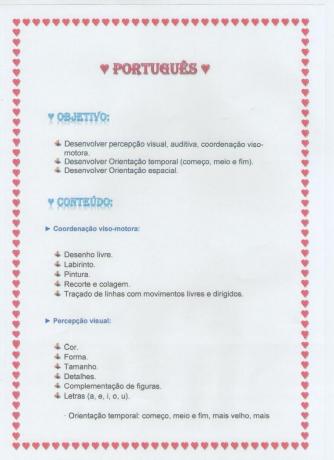
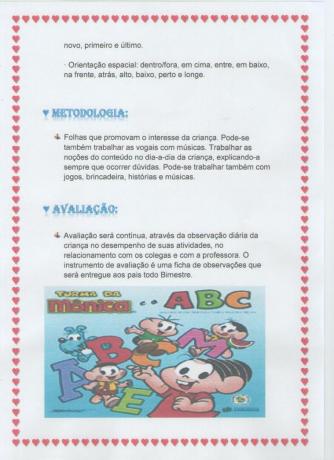

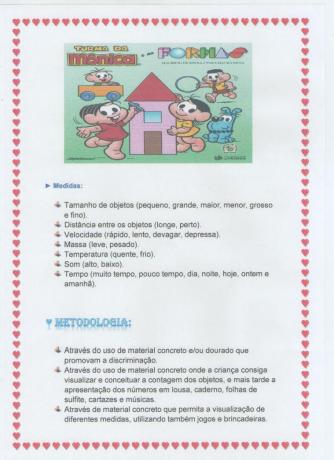
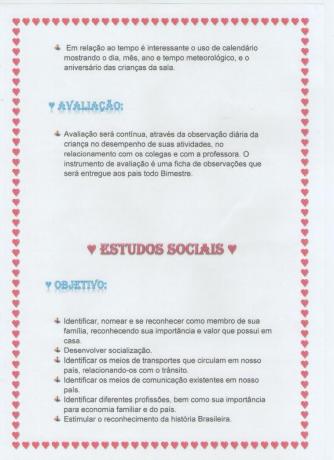

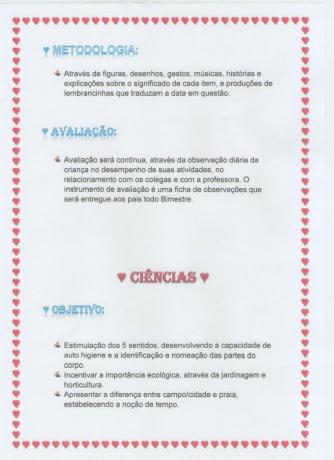
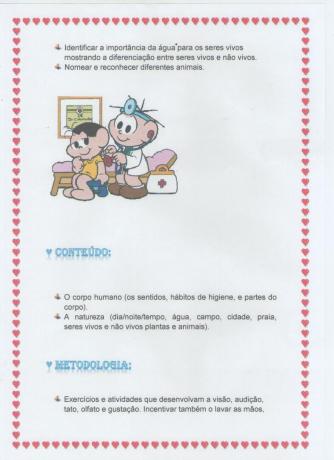
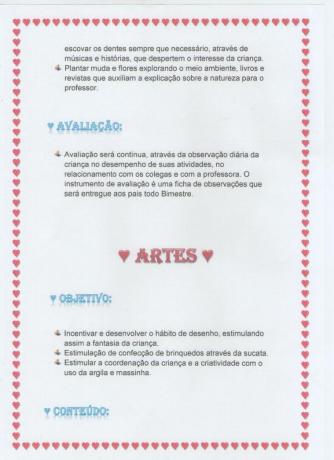
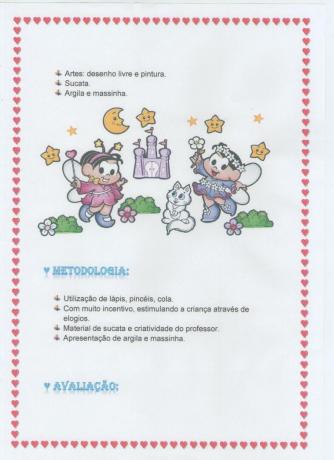
Be sure to check:
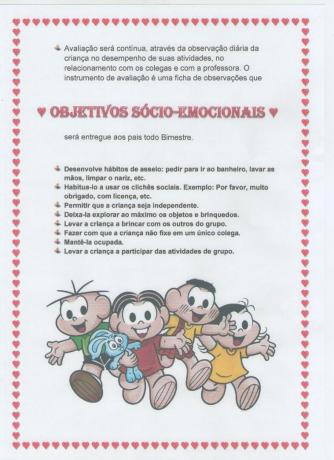
To make it easier check out the following link and download the illustrated Annual Plan for Kindergarten 2 shown above in PDF:
NOTE: Throughout the year, the themes will be dealt with in the form of projects and in a playful way.

Assessment will be done through exercises and activities performed by students verifying learning, assimilation and understanding.
Pronunciation and interest.
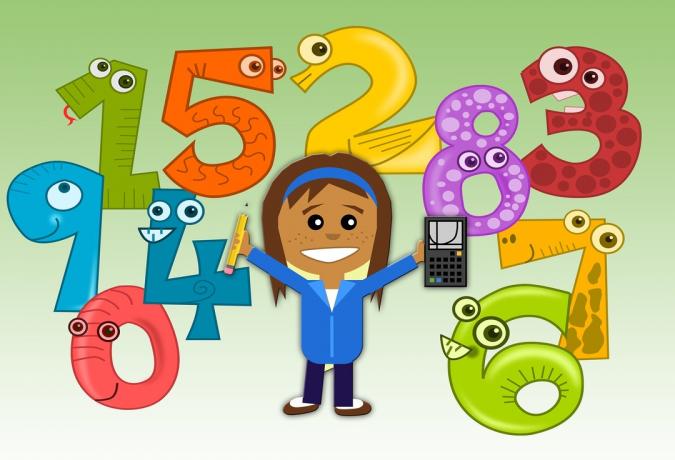
Assessment through activities carried out by students and corrections of lessons, always checking participation, interest and learning.
Continuous and daily assessment developing logical-mathematical reasoning.

Assessment will be continuous and daily through the work and activities performed by the students, in order to develop: creativity, interest, spontaneity, self-esteem, whim, attention, curiosity, reasoning, cooperation, companionship and motivation.
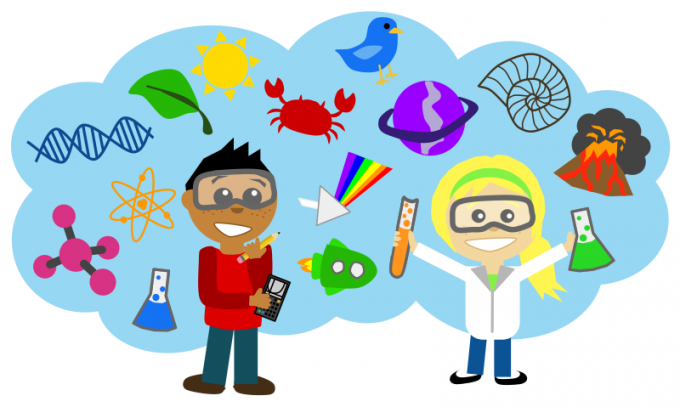
Continuous and daily assessment through activities and exercises performed and performed by students, with the purpose to develop: interest, attention, cooperation, spontaneity, learning, observational skills, analysis and etc.
Continuous assessment through the activities and exercises performed and proposed to the students, in which: interest, assimilation, understanding, learning, behavior, spontaneity, capacity, cooperation, participation and the execution of activity.
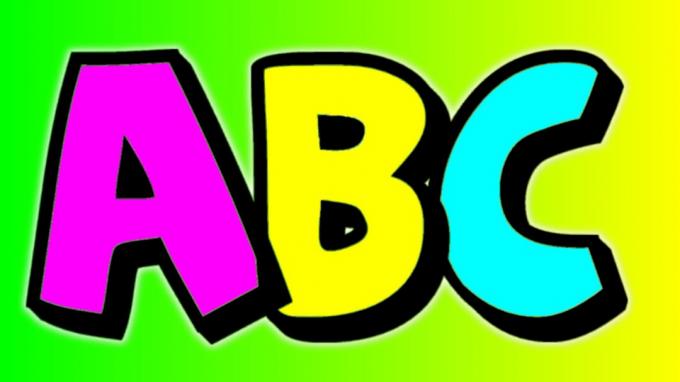
Continuous and daily assessment through the participation, interest and execution of activities made by students.
Correction of lessons and activities.
Verification of learning: reading, identification and assimilation of activities, graphic exercises.
Subscribe to our email list and receive interesting information and updates in your email inbox
Thanks for signing up.